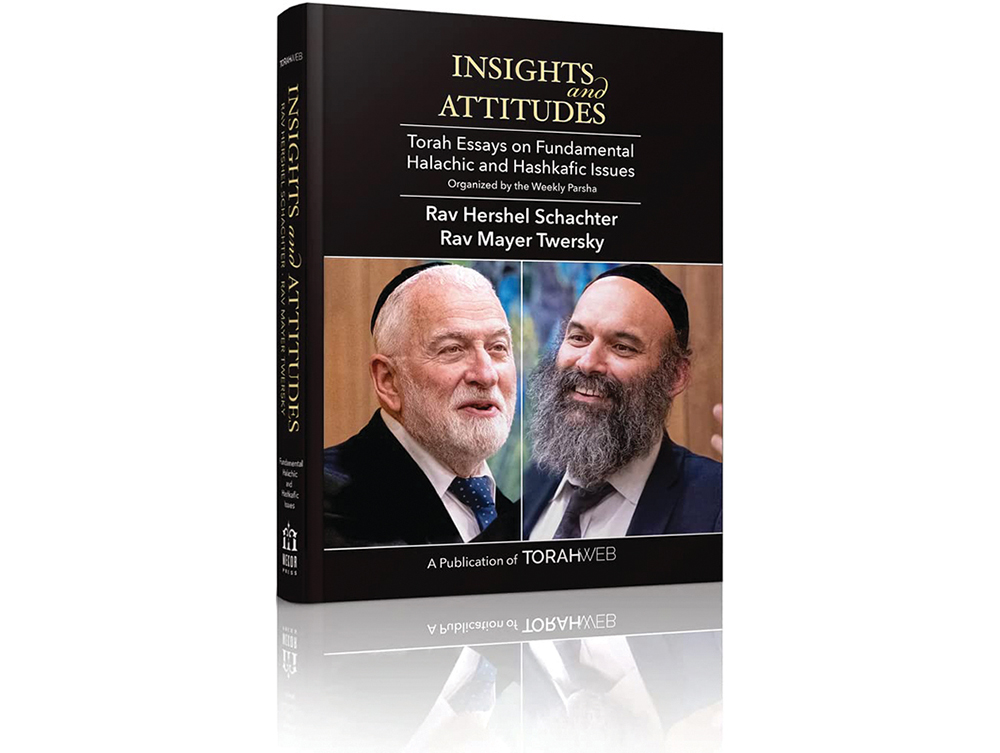
Editor’s note: This series is reprinted with permission from “Insights and Attitudes: Torah Essays on Fundamental Halachic and Hashkafic Issues,” a publication of TorahWeb.org. The book contains multiple articles—organized by parsha—by Rabbi Hershel Schachter and Rabbi Mayer Twersky.
How can we understand the strange phenomenon of antisemitism, which has existed throughout the ages in all societies? In the haggadah of Pesach, we mention that:
בכל דור ודור עומדים עלינו לכלותינו
“In every generation, there is some group attempting to wipe out the Jews.” There cannot be a sociological explanation for this phenomenon, if it appears in so many different societies.
In parshas Haazinu (Devarim 32:12) we read, ה’ בדד ינחנו that “God guides His nation all alone,” with no other power assisting Him. The rabbis of the Talmud (Chagigah 3a) understood the meaning of דחאה … לארשי עמש to be not only that there is only one God—as opposed to any number more than one—but also that God is unique. When the Jewish people proclaim Shema, we are proclaiming God as a unique being.
When God proclaims, מי כעמך ישראל גוי אחד בארץ—“Who is like Your nation, Yisrael, one nation in the land” (Divrei Hayamim I 17:21), He is proclaiming the uniqueness of the Jewish people. Each is sui generis. Bilam (Bamidbar 23:9) described the uniqueness of the Jewish people with the same terminology used regarding God Himself, i.e., the nation dwells “levadad—הן עם לבדד ישכן.” The Torah later (Devarim 33:28) picks up on this expression first used by Bilaam, וישכן ישראל בטח בדד עין יעקב that the Jewish people, indeed, do live in this world in a state of isolation—badad—due to their uniqueness. All human beings were created betzelem Elokim, but only Bnei Yisrael are referred to as banim leMakom (Pirkei Avos 3:14). They have received the genes of uniqueness—so to speak—from God Himself.
In our prayers, we mention the fact that, ושמך הגדול והקדוש עלינו קראת, that Hashem has incorporated His great and holy name into ours: We are called, “Am Hashem—the nation of God.” We also mention in our prayers, ושמינו קראת בשמך, that He has also incorporated our name into His. God is known as “Elokei Yisrael,” the God of the Jewish people. In some countries the practice was for the wife to adopt the husband’s family name, while in others the practice was for the husband to take the wife’s family name. (Just to cite one famous example, the Maharsha took on his wife’s family name, “Eidels.”) The relationship between the Jewish people and God is commonly compared (by the Tanach) to that of a husband and wife. The compatibility of “the couple” stems from the fact that each one is badad—unique.
All people tend to distrust others who are different, and the Jewish people are always different. Despite the fact that, in recent years, one of the prime ministers of medinas Yisrael declared in his inaugural address that, “we shall no longer be an am levadad yishkon,” this situation will never change. It is built by God into the nature and the character of our people. We always have a totally different perspective on everything. When Rivka Imeinu was pregnant with her twin boys, the Torah tells us that they were already fighting with each other: ויתרצצו הבנים בקרבה (Bereishis 25:22). The rabbis of the Talmud had an old tradition, הלכה בידוע שעשו שונא ליעקב— “It is a well-established principle that Eisav hates Yaakov,” (see Rashi’s comment to Bereishis 33:4).
In recent years, many Jews have been thinking according to what is politically correct, as opposed to thinking correctly. The angel teaches Torah to every Jewish soul before it is born (Niddah 30b). We all have to learn Torah to orient ourselves towards “thinking Jewishly.” The Torah is “God’s way of thinking.” The first steps in teshuva are to learn more Torah. We pray every day:
השיבנו אבינו לתורתך … והחזירנו בתשובה שלמה לפניך—“Please bring us back to Torah study so that we will be able to do complete teshuva.”
Rabbi Hershel Schachter joined the faculty of Yeshiva University’s Rabbi Isaac Elchanan Theological Seminary in 1967, at the age of 26, the youngest Rosh Yeshiva at RIETS. Since 1971, Rabbi Schachter has been Rosh Kollel in RIETS’ Marcos and Adina Katz Kollel (Institute for Advanced Research in Rabbinics) and also holds the institution’s Nathan and Vivian Fink Distinguished Professorial Chair in Talmud. In addition to his teaching duties, Rabbi Schachter lectures, writes and serves as a world renowned decisor of Jewish law.










